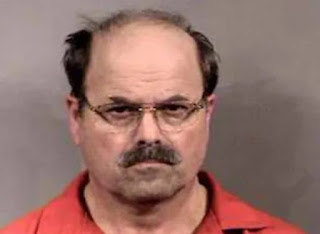Gang Rapists Sentenced to Death, but India’s Denial Will Continue
India is not the only country dealing with high rates of violence against women, but we have perfected the ability to look away.
Her name is not used in the Indian newspapers. In the months between December 2012 and now, even those who knew who she was tend to use one of the many pseudonyms the media bestowed on her: Nirbhaya (the fearless one), Damini (lightning), Amanat (treasure).
Related: The Execution of Zhao Ailong She was Part a Gang Responsible for the Killing of Ten People
Her name is protected for legal reasons, but also almost in apology since we know far too much about the woman who died on December 29th, 2012. We know not just the acceptable facts—she wanted to be a physiotherapist, her father was a hardworking airport loader, she was coming back from seeing Life of Pi at a local Delhi mall when she and her male friend were accosted on a bus by six men—but the unbearably invasive ones.
The broken bones, the damage to her intestines, the colour of the coat she thought she might buy as she shopped at the mall a few hours before she was raped, dying of her injuries 11 days later. Many of these details, including the girl’s name, were volunteered by her family. And by now, we know almost as much about her six rapists and murderers, the poverty that marked their lives, the brutality that accompanied their acts of rape. Ram Singh was found hanged in jail, the juvenile cannot be named under Indian law; the other four, Mukesh Singh, Vinay Sharma, Akshay Thakur, Pawan Gupta were sentenced to death by hanging this Friday in a Delhi court.
People could not look away from her death and her rape, from every last, painful detail; so many Indians mourned bitterly, as though they had lost someone of their own. But if these four men are hanged, when the process of appeals and mercy petitions finish, that will not put an end to sexual violence.
India is not the only country in the world dealing with high rates of violence against women, including rape; it’s just that for decades, we had perfected the ability to look away. We did not look at the ways in which caste wars impacted women and visited even more violence on them, or at the high rates of domestic violence. Even with rape, even in a year when rapes have been front-page news, we prefer to look at the relatively minuscule percentage of “stranger rapes” than at the high numbers of rapes in situations where the victims and survivors know their assailants.
Often in this year, it has been hard to look too closely at what the news brings. The bodies of three young girls, found mutilated in a well; the rape and murder of a 50-year-old women suspected of witchcraft by nine men who raped her 26-year-old daughter, too; the 62-year-old man who raped or assaulted all five of his daughters and had started on his granddaughters when they finally reported him.
Those who called for justice, anguish in their voices, might be satisfied with a hanging, with prison sentences. This might be the closure they wanted. They might avert their eyes and move on to other matters, the falling rupee, a looming election.
The danger is that with the sentencing of these four murderers, Indians might decide that it’s all right to forget, or worse, to justify rape and assault. Just after the sentencing, AP Singh, the defense lawyer, said that he would “burn” his daughter alive if she roamed around with a boyfriend. That line of argument, blaming women for the violence visited on them, because of the ordinary freedoms they claim, has been heard too often in the country over this last year.
No nation has “ended rape”. But there are countries where alongside the threat of rape or sexual violence, women can claim everyday freedoms and the ability to exercise choice over their lives. The real test will come a few months down the line, when we know whether we took the easy way out. It is hard to keep looking, to take in the autopsy reports and the medical reports that flood in every day. But there can be no closure while those silent, unreported acts of violence continue: the rapes, the acid attacks, the thousands of undiscussed, unseen, burned, shattered bodies of girls and women across India. In all conscience, how can we look away?
Thanks for reading leave your thought in the comment section below.
Read more on our News Channel











Comments
Post a Comment